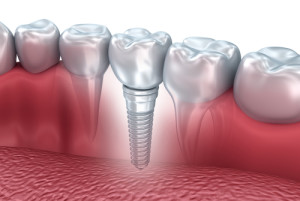Like other medical and healthcare procedures, dental implants, may be done for cosmetic purposes or for urgent need to replace missing teeth. A person can be missing one, two, a set or their entire teeth which may have been caused by decay, an accident, a disease or an illness which has affected the gum and teeth. They have been used for different ages, but in some countries you have to be above 18 years old. In some cases, dental implants are used to help with a small jaw that stopped growing. The assessment can be taken from a trained Portsmouth dentist in implantology . You can get one or even two if the need is urgent as although implants are known to be safe and have benefits, they require a lot of time, and high costs depending on the cost. The following are common cases where implants have been used.
Who needs a dental implant?
Dental implants were used since the 1960s. They were used to replace missing teeth, but nowadays are used to support a crown (which are used for a single tooth), or a bridge which replaces a set of missing teeth or even all as with dentures. People who want to get their normal chewing back benefit from implants because they feel and work like normal teeth. Their material titanium allows the implant to fit with the adjacent teeth and does not require any root work or filling to be done.
were used since the 1960s. They were used to replace missing teeth, but nowadays are used to support a crown (which are used for a single tooth), or a bridge which replaces a set of missing teeth or even all as with dentures. People who want to get their normal chewing back benefit from implants because they feel and work like normal teeth. Their material titanium allows the implant to fit with the adjacent teeth and does not require any root work or filling to be done.
The support that implants give dentures helps with firm grip and positioning. This helps patients having them regain normal feeling and taste. The use of implants with dentures, in some situations, may substitute the need for glues.
What patients may not have implants?
Generally, and most dentists may refuse to fit implants if tests show that the bone mass is not large. Patients who have been exposed to radiotherapy, may not benefit of implants as this it affects how successful implants are. The requirement is to have healthy gum and strong bones in your jaws to support the implants and withstand the procedure. Some, not all dentists, may refuse to fit implants if the patient smokes, as this may influence the outcome of the treatment. Gum diseases and active tooth decay need to be treated if they exist as they might cause infections.
If you are suffering from diabetes, taking medicines to treat bone diseases or have osteoporosis then you may not be able to have dental implants as there is not enough research to suggest that implants work in these conditions. Additionally, cases which may exclude implants include people with blood clotting disorders. Drug abuse also disqualifies a person from having an implant.